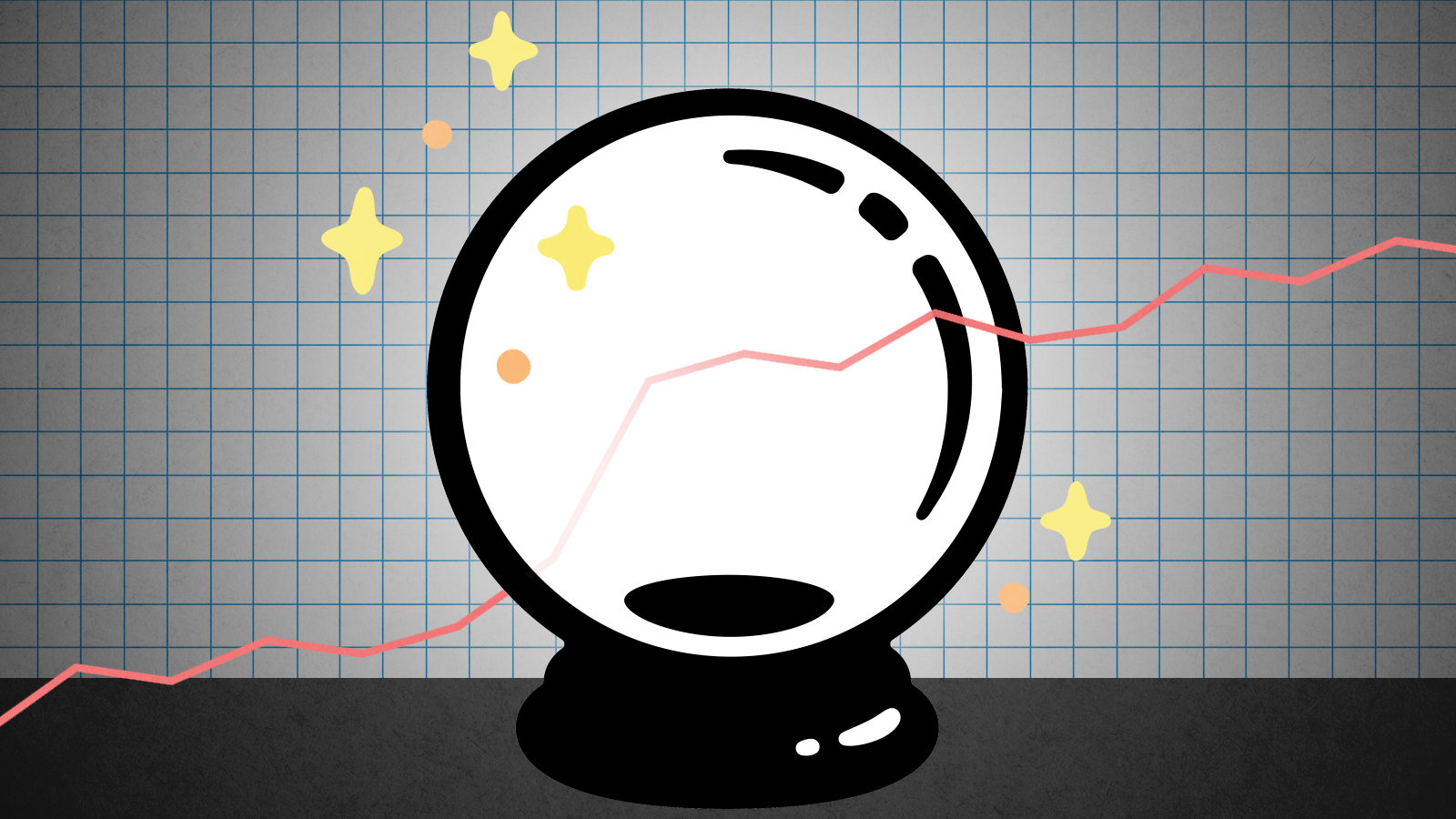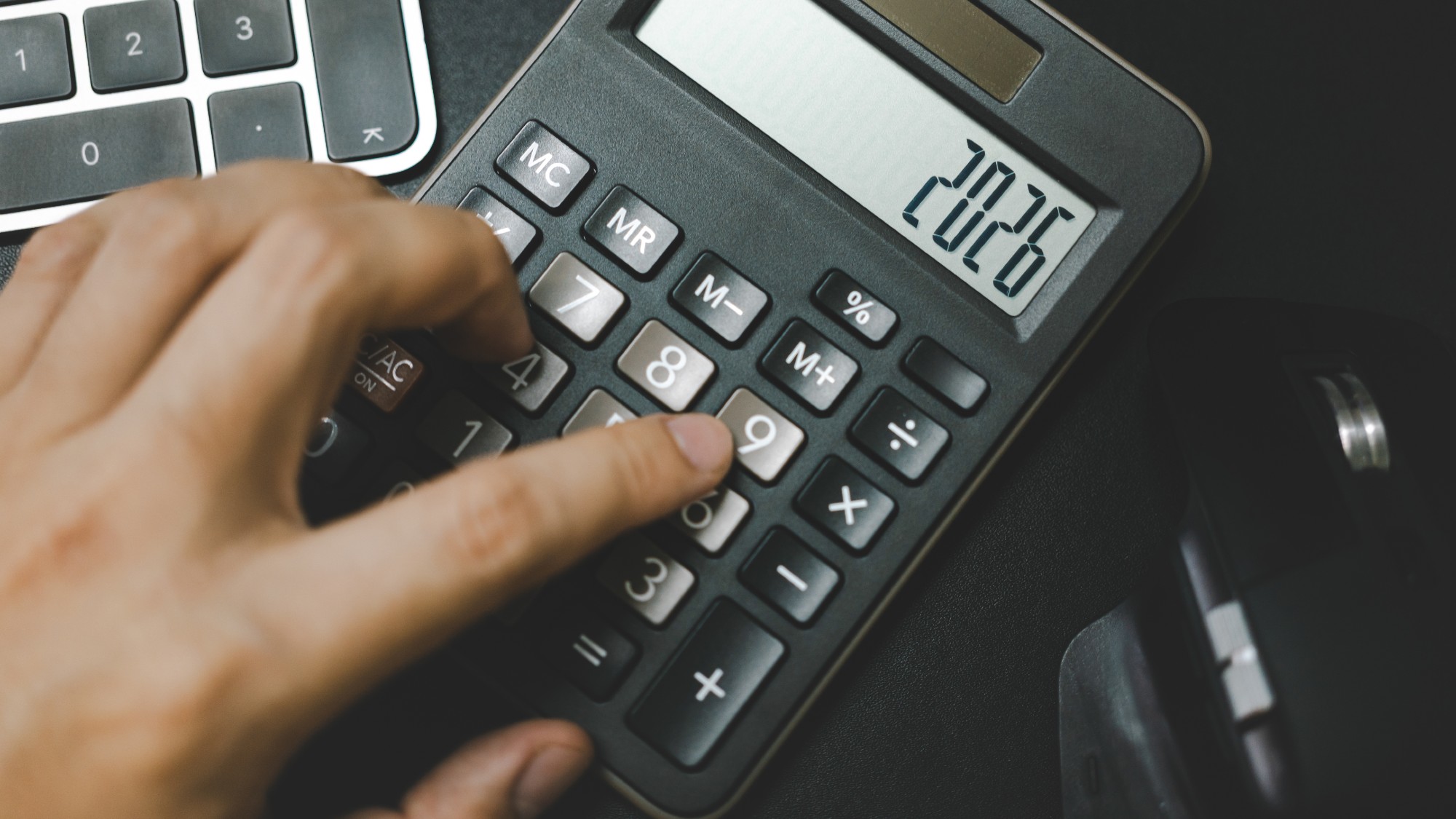Where will inflation go next?
Believe it or not, inflation is easing up


A free daily email with the biggest news stories of the day – and the best features from TheWeek.com
You are now subscribed
Your newsletter sign-up was successful
Even if consumers are not yet feeling the effects, inflation is, indeed, on its way down. In July 2024, "year-over-year inflation reached its lowest level in more than three years ... the latest sign that the worst price spike in four decades is fading," said AP News. Further, "consumer prices rose just 0.2% from June to July after dropping slightly the previous month," which, comparatively speaking, "was the mildest gain since March 2021."
Still, there are some spending categories where inflation remains stickier than others, and overall, prices today are a good bit higher than they were before the pandemic — which may be why consumers are still facing some sticker shock.
The situation with inflation could shift further soon, as "amid signs of softening in the labor market, investors expect the Fed to cut rates at its Sept. 18 meeting," said The Washington Post. Additional cuts are expected after that.
The Week
Escape your echo chamber. Get the facts behind the news, plus analysis from multiple perspectives.

Sign up for The Week's Free Newsletters
From our morning news briefing to a weekly Good News Newsletter, get the best of The Week delivered directly to your inbox.
From our morning news briefing to a weekly Good News Newsletter, get the best of The Week delivered directly to your inbox.
Where will inflation rates go next?
Although "inflation eased for the fourth month in a row, to 2.9%, in July," that figure is "not likely to dip much below the current rate" for the remainder of the year, said Kiplinger. There may be some movement, but nothing major — "it's possible that inflation could fall to 2.7% in August and September, but it will bounce back up to 3.0% in the fourth quarter."
Things could pick up pace in the new year though. "Expect the annual inflation rate to show a significant move towards the Fed's target of 2% to 2.5% in the early spring of 2025," said Kiplinger, assuming "monthly improvements materialize this summer."
Still, there are some experts who worry whether inflation will land within the Fed's 2% target range. In fact, said the Post, some economists "worry that the economy's inflationary ills are not quite cured," given that "consumer spending remains solid," "layoffs are below pre-pandemic levels" and "second-quarter gross domestic product grew at an annual rate of 2.8%, which is faster than the 1.8% mark that the Congressional Budget Office says is sustainable."
Are high prices on their way out?
Here is the sticking point — and "where regular people and economists might see things differently," said NPR. While technically speaking, inflation really is coming down, "many people still feel they are paying more at the supermarket or at restaurants than they used to — and they are not incorrect."
A free daily email with the biggest news stories of the day – and the best features from TheWeek.com
For one, "inflation during the pandemic rose more than many Americans had grown used to in years prior, and all the cumulative price increases continue to hit people's wallets," said NPR. And secondly, inflation easing does not mean that prices are no longer increasing at all — just that they are not going up as much as they once were.
All of which is to say, even if prices do not continue their alarmingly rapid upward trend, the prices we are seeing now may just be our new reality. That is not an easy pill to swallow either, given that "of the nearly 400 items BLS [Bureau of Labor Statistics] tracks, just 21 (or roughly 6%) are cheaper today than they were pre-pandemic," said Bankrate. Eggs, for example, went up 57.6% in price from February 2020 to July 2024, while fuel oil jumped 44%.
While economic factors are unlikely to drive prices back down, consumer sentiment just might. In fact, "many companies have slowed their price increases as consumers have become more resistant to paying more," said NPR, with at least one company even reducing prices "to where they were before the earlier hikes took effect."
What's the Fed likely to do?
Though Fed Chair Jerome Powell has "said he is seeking additional evidence of slowing inflation before the Fed begins cutting its key interest rate," said AP News, "economists widely expect the Fed's first rate cut to occur in mid-September, and will be followed by additional cuts in November and December." At least one of those cuts is expected to be "a half-point."
Assuming the Fed moves forward with its expected plans to slash rates this fall, that "will mark a new chapter for the economy, with implications for average Americans and businesses," said the Post. This is due to the fact that "lower rates could offer relief to potential home buyers who have been sidelined by high mortgage rates or to businesses that have delayed investment plans."
Should we be worried about a recession?
It is hard to ever say for sure. For instance, "economists had worried last year that the economy would be headed for a recession" — and "instead, the economy grew strongly," said NPR.
Fears were "flaring again after the July U.S. jobs report came in worse than expected amid ongoing concerns about persistently high interest rates," said NerdWallet.
Overall, however, "most economists still don't expect [a recession]," said NPR.
Becca Stanek has worked as an editor and writer in the personal finance space since 2017. She previously served as a deputy editor and later a managing editor overseeing investing and savings content at LendingTree and as an editor at the financial startup SmartAsset, where she focused on retirement- and financial-adviser-related content. Before that, Becca was a staff writer at The Week, primarily contributing to Speed Reads.
-
 Trump wants a weaker dollar but economists aren’t so sure
Trump wants a weaker dollar but economists aren’t so sureTalking Points A weaker dollar can make imports more expensive but also boost gold
-
 Political cartoons for February 3
Political cartoons for February 3Cartoons Tuesday’s political cartoons include empty seats, the worst of the worst of bunnies, and more
-
 Trump’s Kennedy Center closure plan draws ire
Trump’s Kennedy Center closure plan draws ireSpeed Read Trump said he will close the center for two years for ‘renovations’
-
 3 tips to help protect older family members from financial scams
3 tips to help protect older family members from financial scamsthe explainer Prevent your aging relatives from losing their hard-earned money
-
 Saving for a down payment on a house? Here is how and where to save.
Saving for a down payment on a house? Here is how and where to save.the explainer The first step of the homebuying process can be one of the hardest
-
 What would a credit card rate cap mean for you?
What would a credit card rate cap mean for you?the explainer President Donald Trump has floated the possibility of a one-year rate cap
-
 Do you have to pay taxes on student loan forgiveness?
Do you have to pay taxes on student loan forgiveness?The Explainer As of 2026, some loan borrowers may face a sizable tax bill
-
 Planning a move? Here are the steps to take next.
Planning a move? Here are the steps to take next.the explainer Stay organized and on budget
-
 What should you look out for when buying a house?
What should you look out for when buying a house?The Explainer Avoid a case of buyer’s remorse
-
 What to look for in a reliable budgeting app
What to look for in a reliable budgeting appThe Explainer Choose an app that will earn its place in your financial toolkit
-
 3 smart financial habits to incorporate in 2026
3 smart financial habits to incorporate in 2026the explainer Make your money work for you, instead of the other way around
